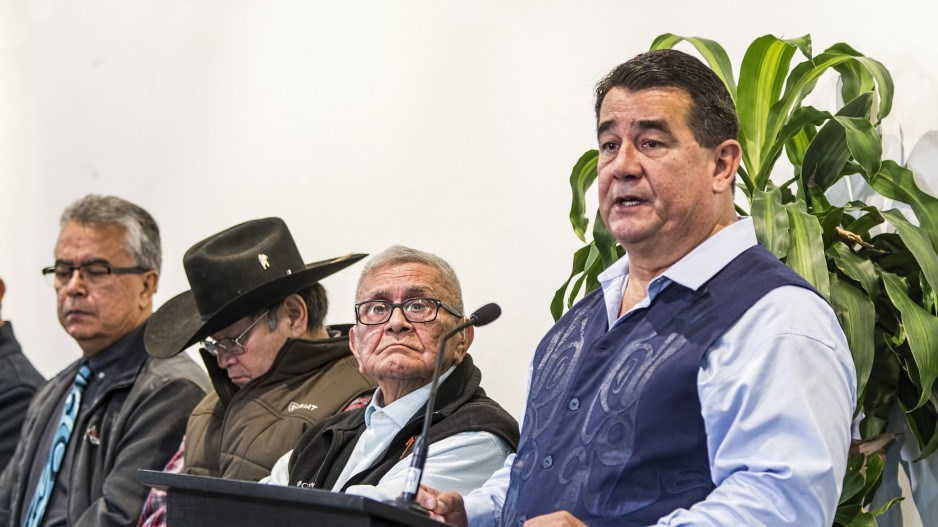First Nations in B.C. that are both supportive of and opposed to open net salmon farming in B.C. are turning up the heat on the Trudeau government, as a deadline looms for a federal decision on a salmon farming transition plan for B.C.
In a 2019 mandate letter to the federal Fisheries and Oceans Minister, Trudeau ordered the minister to “work with the province of British Columbia and Indigenous communities to create a responsible plan to transition from open net-pen salmon farming in coastal British Columbia waters by 2025 and begin work to introduce Canada’s first-ever Aquaculture Act.”
The new Aquaculture Act appears to have fallen entirely off of the federal government’s radar. There appears to have been little progress made on it since a public comment process was completed in February 2021.
The federal government is still expected to make a decision on a transition plan for the salmon farming sector in B.C., however.
According to the First Nations for Finfish Stewardship (FNFFS), the Trudeau government is “finalizing discussions regarding the future of salmon farming.”
The organization has written an open letter to Prime Minister Justin Trudeau calling on the federal government to renew federal licences for all salmon farms in B.C.
A number of salmon farms have already been shut down in the Discovery Islands and Broughton Archipelago regions of B.C.
The letter notes that all salmon farms still operating in B.C. now have the support of First Nations.
The industry meanwhile has been working to develop hybrid systems and semi-containment to try to limit interactions between wild and farmed fish.
The FNFFS says it has its own transition plan that is has presented to the federal minister of Fisheries and Oceans.
“As you know, 100 per cent of B.C. farmed salmon is raised in partnership with coastal First Nations,” writes Dallas Smith, spokesman for FNFFS and the Tlowitsis Nation.
“The sector supports over 500 jobs for local First Nations and injects over $50 million a year into our communities.”
“We invite you, Prime Minister, to officially join us on this path by making your first step forward a six-year licence reissuance for the salmon farms in our territories so that the sector stays in our communities, and so that our Nations can thrive in increasingly trying times.”
While the salmon farms still operating in B.C. enjoy the support of First Nations, the vast majority of First Nations in B.C. are opposed to open-net salmon farming, and they appear to have broader public support.
The First Nation Wild Salmon Alliance is planning a show of force in the form of a press conference tomorrow morning at tPolygon Gallery in North Â鶹´«Ã½Ó³»that will include a number of organizations that support shutting down open-net salmon farming in B.C.
Among those supporting the closure of open-net salmon farms in B.C. is the Sport Fishing Institute of B.C., the Pacific Salmon Foundation, Skipper Otto, the United Fisherman and Allied Workers Union, and several environmental groups, including the David Suzuki Foundation, Living Oceans and Watershed Watch.
The press conference is being held “to take stock of the Trudeau commitment to transition open-net pen fish farms out of the ocean by 2025.”
According to the First Nation Wild Salmon Alliance, 120 First Nations in B.C. support the removal of open-net salmon farms from B.C. waters. They fear open-net salmon farms are having a deleterious effect on wild salmon.



